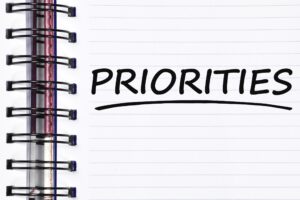The generational exchange of knowledge is a powerful tool for innovation and adaptation. While Baby Boomers have a wealth of experience and knowledge, Gen Z is bringing new perspectives and strategies to the table, particularly when it comes to managing finances. Here are 11 financial insights that Gen Z can offer Baby Boomers, highlighting the fresh approaches and digital savvy of the youngest generation of adults.
1. The Importance of Financial Literacy
Gen Z values financial education and is more likely to seek information about finances early in life. They use online resources to understand investing, taxes, and debt management. Baby Boomers can be inspired by Gen Z’s proactive approach to become more financially literate and make informed decisions about their money.
2. Adopting Subscription-Based Services
Gen Z is adept at utilizing subscription-based services for managing regular expenses, from entertainment to software and even groceries. Baby Boomers can learn from this trend to streamline their expenses and enjoy the convenience of automatic renewals and deliveries. This approach not only helps in budget management but also ensures that they are only paying for what they truly need and use, potentially reducing wasteful spending.
3. Embracing Mobile Payment Systems
Gen Z is leading the way in adopting mobile payment systems like Apple Pay, Venmo, and Google Wallet, which offer convenience and reduce the need for carrying cash or physical credit cards. Baby Boomers can learn from Gen Z the benefits of using these platforms for everyday transactions, enhancing security and tracking spending more efficiently. This shift not only simplifies financial transactions but also integrates seamlessly with other financial management tools, promoting a streamlined approach to personal finance.
4. Flexible Earning Through the Gig Economy
The gig economy has expanded significantly, and Gen Z is at the forefront of utilizing platforms like Uber, Airbnb, and freelance job sites to generate additional income. Baby Boomers can learn from Gen Z about leveraging these platforms to supplement retirement income or to fund other interests and hobbies. This flexibility allows for better control over work hours and income levels, catering to personal schedules and needs.
5. Investing in Cryptocurrency
While Baby Boomers may be more cautious about new investment classes, Gen Z has been more open to investing in cryptocurrencies and other digital assets. They can offer insights into the risks and rewards of these newer financial instruments, providing a different perspective on diversification and the potential for returns.
6. Sustainability and Ethical Investing
Gen Z is particularly conscious of the impact of their money, showing a strong preference for sustainable and ethical investment opportunities. They can teach Baby Boomers how to invest in companies that are not only financially viable but also socially responsible, creating opportunities to align investments with personal values.
7. Minimalism and Financial Independence
Many in Gen Z advocate for minimalism in their lifestyles to achieve financial independence early, emphasizing the value of living with less to save more. They prioritize experiences over possessions, which can be a valuable lesson for Baby Boomers, especially those looking to downsize or simplify their lives in retirement. This shift towards minimalism not only helps reduce expenses but also focuses on what truly brings joy and fulfillment, encouraging a more intentional approach to spending and saving.
8. The Use of Social Media for Financial Advice
Gen Z often turns to social media platforms to gather financial advice and learn about personal finance and investing from peers and experts alike. Baby Boomers can benefit from understanding how platforms like YouTube, Instagram, or TikTok can be sources of financial education and community support.
9. Prioritizing Mental Health Over High Earnings
Gen Z places significant importance on mental health, often valuing it over high salaries. Essentially, work-life balance is always part of the equation with Gen Z, ensuring they don’t sacrifice too much in the name of money. This perspective can help Baby Boomers reassess their own work commitments and financial goals, emphasizing well-being alongside financial security.
10. Tech-Savvy Budgeting
Gen Z uses apps and software for budgeting that automate much of the process and provide insights into spending patterns. Baby Boomers can learn to use these tools to keep their finances in check and plan for future expenses more effectively. Plus, this strategy can help Baby Boomers reduce the amount of time they spend monitoring their financial situation, freeing up valuable space in their schedules.
11. The Acceptance of Non-Traditional Career Paths
Gen Z is more likely to pursue non-traditional career paths that align with their passions and interests, often incorporating multiple income streams. This approach can inspire Baby Boomers to explore different avenues for income in retirement, whether it’s turning a hobby into a business or monetizing a skillset.
Baby Boomers Can Learn from Gen Z’s Financial Strategies!
By embracing some of Gen Z’s innovative financial strategies and perspectives, Baby Boomers can enhance their financial management and potentially find new ways to enjoy their wealth. The exchange of knowledge across generations can lead to a fuller, more adaptive approach to money that benefits everyone involved.
Read More:
Boomers Can Beat Being Broke by Using These 10 Out of The Box Ideas
8 Ways Life Was Tougher for Boomers Than Millennials and Gen Z
Catherine is a tech-savvy writer who has focused on the personal finance space for more than eight years. She has a Bachelor’s in Information Technology and enjoys showcasing how tech can simplify everyday personal finance tasks like budgeting, spending tracking, and planning for the future. Additionally, she’s explored the ins and outs of the world of side hustles and loves to share what she’s learned along the way. When she’s not working, you can find her relaxing at home in the Pacific Northwest with her two cats or enjoying a cup of coffee at her neighborhood cafe.









































